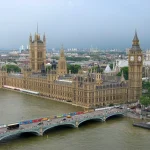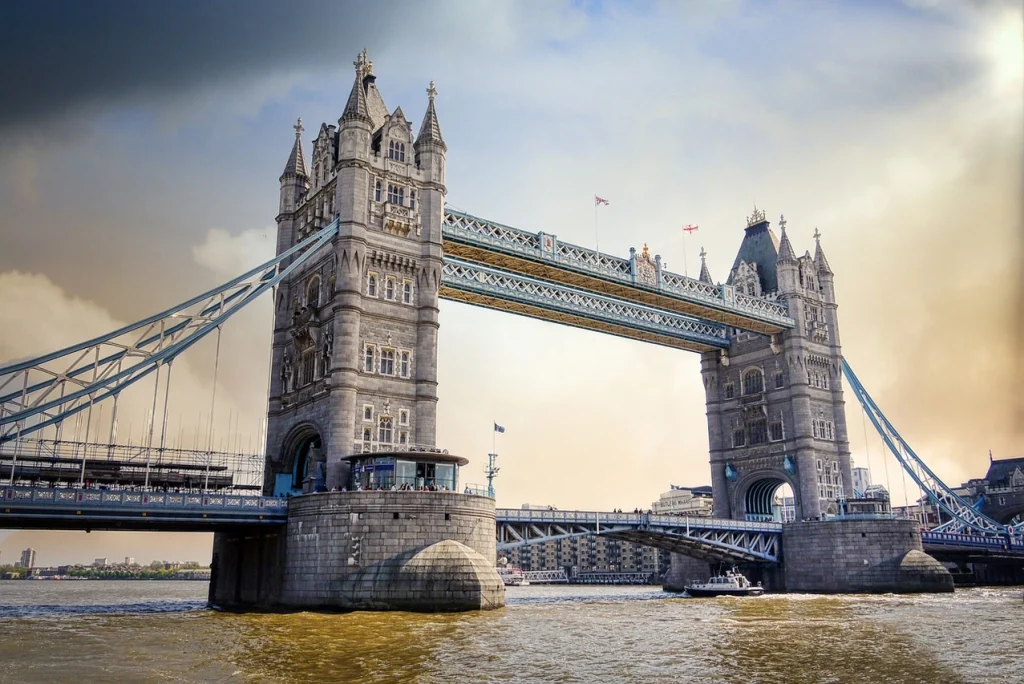WORK VISA UNITED KINGDOM








WORK IN UNITED KINGDOM
Work In United Kingdom | UK Work Visa | UK Work Permit | Working in the United Kingdom | Different U.K. Work Visas | Temporary UK Worker Visas | Employment In UK | Types of Visas for Temporary Employment in UK
Navigating Career Horizons: The Scope and Prospects of Working in the United Kingdom
The United Kingdom, with its rich cultural heritage, global business hubs, and diverse job market, remains an attractive destination for professionals seeking career opportunities and international work experience. In this blog, we’ll explore the scope and prospects of working in the UK, shedding light on the various UK work visas and the opportunities they present for individuals looking to build a successful career in the British Isles.
Scope and Prospects of Working in the UK:
The UK’s dynamic job market spans various industries, including finance, technology, healthcare, and creative arts. The country’s cosmopolitan cities, coupled with a tradition of innovation, create an environment where professionals from different corners of the world can thrive. Working in the UK not only provides the potential for career growth but also offers exposure to a diverse and vibrant culture.
Different U.K. Work Visas:
To work in the United Kingdom, individuals typically require a work visa. There are several types of UK work visas, each designed for specific purposes and categories of workers. Some of the most common ones include:
Tier 2 (General) Visa: This visa is for skilled workers from outside the European Economic Area (EEA) with a job offer in the UK. It requires sponsorship from a UK employer.
Tier 1 (Exceptional Talent) Visa: For individuals recognized as leaders or emerging leaders in the fields of science, humanities, engineering, the arts, or digital technology.
Tier 5 (Temporary Workers) Visa: This category includes several subtypes such as the Youth Mobility Scheme (for young people from certain countries), the Government Authorized Exchange visa, and the International Agreement visa.
Ancestry Visa: For Commonwealth citizens with a grandparent born in the UK, allowing them to work and live in the country.
Temporary UK Worker Visas:
Apart from the above, there are temporary worker visas designed for specific industries or purposes:
Seasonal Worker Visa: For individuals looking to work in the UK’s agricultural sector for a short period.
Intra-Company Transfer (ICT) Visa: For employees of multinational companies being transferred to a UK branch.
Sportsperson Visa: For elite athletes and coaches.
Minister of Religion Visa: For individuals undertaking preaching, pastoral, or non-pastoral work.
Employment in the UK: Key Considerations
Sponsorship: Most work visas in the UK require sponsorship from a UK employer. Securing a job offer is often the first step in the visa application process.
Duration: Work visas have specific durations, and individuals must adhere to the terms and conditions outlined in their visa category.
Tier 2 (General) Visa Points System: The Tier 2 (General) Visa operates on a points-based system, taking into account factors such as salary, English language proficiency, and the type of employment.
Skilled Worker Route: The Skilled Worker Route replaced the Tier 2 (General) Visa, simplifying the system for skilled workers from outside the EEA.
Working in the United Kingdom offers a wealth of opportunities for career growth and cultural enrichment. Navigating the UK work visa landscape requires careful consideration of one’s qualifications, job prospects, and the specific visa category that aligns with their career goals. As professionals embark on their journeys to work in the UK, the scope and prospects of a successful and fulfilling career in the British Isles unfold as a gateway to unparalleled professional growth and global exposure.
Charting a Professional Course in the Heart of the Kingdom: A Guide to Working in the United Kingdom
The United Kingdom, a blend of rich history, cultural diversity, and economic prominence, has long been an attractive destination for professionals seeking international work experiences. Navigating the intricacies of working in the UK involves understanding the various work visas and permits available. In this blog, we’ll explore the different UK work visas, the process of obtaining a UK work permit, and the diverse employment landscape that makes the UK a coveted destination for career growth.
UK Work Visas – A Spectrum of Opportunities:
1. Tier 2 (General) Visa:
Overview: The Tier 2 (General) visa is the primary route for skilled workers from outside the European Economic Area (EEA) to fill job vacancies in the UK.
Key Features:
1. Sponsored by a UK employer.
2. Requires a valid job offer.
3. Points-based system assessing skills, salary, and proficiency in English.
2. Tier 1 (Exceptional Talent) Visa:
Overview: The Tier 1 (Exceptional Talent) visa is for individuals who have been endorsed as leaders or emerging leaders in the fields of science, humanities, engineering, the arts, and digital technology.
Key Features:
1. Endorsed by a designated competent body.
2. No sponsorship required.
3. Points-based system for endorsement.
3. Tier 5 (Temporary Worker) Visa:
Overview: The Tier 5 (Temporary Worker) visa encompasses various categories, including charity workers, creative and sporting professionals, and religious workers, among others.
Key Features:
1. Temporary stay for specific purposes.
2. Sponsored by a UK employer or organization.
3. Different categories with specific eligibility criteria.
4. Tier 4 (Student) Visa (Post-Study Work):
Overview: The Tier 4 (Student) visa allows international students to work in the UK after completing their studies through the Post-Study Work (PSW) route.
Key Features:
1. Allows work for up to 2 years after graduation.
2. No requirement for a job offer.
3. Provides an opportunity to gain work experience.
Employment in the UK – The Landscape:
1. Financial and Business Hub:
1. The City of London: As a global financial center, London hosts numerous opportunities in banking, finance, and business services.
2. Tech Innovation: The UK’s tech sector, particularly in cities like Manchester and Cambridge, offers a thriving environment for IT professionals.
2. Creative and Cultural Industries:
1. West End and Film Industry: London’s West End is renowned for theater, while the UK’s film industry, centered in cities like Bristol and Manchester, attracts creative professionals.
2. Design and Fashion: Cities like London and Manchester are hubs for design, fashion, and the creative arts.
3. Healthcare and Research:
1. National Health Service (NHS): Opportunities abound in the healthcare sector, with the NHS being a major employer.
2. Research and Development: The UK’s commitment to research excellence attracts professionals in scientific and academic fields.
4. Renewable Energy and Sustainability:
2. Wind and Solar Energy: The UK’s focus on renewable energy and sustainability creates opportunities in the growing green economy.
Types of Visas for Temporary Employment:
1. Tier 5 (Temporary Worker) Visa Categories:
1. Charity Worker Visa: For individuals undertaking unpaid voluntary work for a charity.
2. Creative and Sporting Visa: For individuals engaged in creative and sporting activities.
3. Religious Worker Visa: For individuals working in a religious capacity.
2. Tier 2 (General) Visa:
Skilled Worker Visa: For individuals with a job offer in a skilled occupation.
3. Tier 1 (Exceptional Talent) Visa:
Exceptional Talent Visa: For individuals endorsed as leaders or emerging leaders in their field.
4. Tier 4 (Student) Visa (Post-Study Work):
Post-Study Work Visa: Allows international students to work in the UK for up to 2 years after completing their studies.
Conclusion:
Working in the United Kingdom offers a blend of professional growth, cultural richness, and historical charm. Navigating the UK work visa landscape opens doors to diverse industries and sectors, providing professionals with the opportunity to contribute to a dynamic and globally connected workforce. The journey to work in the UK is not just a career move; it’s an immersion into a country where tradition meets innovation, and where professional aspirations align with a rich tapestry of culture and history. As individuals contribute their skills to the UK’s vibrant professional landscape, they become part of a legacy that values excellence, creativity, and the pursuit of knowledge. The United Kingdom stands as a bridge between tradition and modernity, offering professionals a unique and enriching experience as they carve their professional path in the heart of the kingdom.
A Symphony of Landscapes and Careers: Exploring the Scenic Beauty and Commercial Opportunities of the United Kingdom
The United Kingdom, a captivating blend of historic landmarks, diverse landscapes, and a thriving economy, beckons professionals seeking not only a dynamic career but also a chance to immerse themselves in the scenic beauty that spans from the rolling hills of the countryside to the bustling streets of iconic cities. In this blog, we’ll delve into the scenic wonders of the UK and explore the commercial advantages that accompany the pursuit of a UK work visa.
UK’s Natural Elegance:
1. The Lake District – Tranquil Respite:
Azure Waters: The Lake District, with its mirror-like lakes and lush green valleys, provides a serene retreat. The scenic beauty has inspired poets and artists for centuries.
2. Scottish Highlands – Majestic Peaks:
Heather-Covered Hills: The rugged landscapes of the Scottish Highlands boast dramatic mountain peaks, deep lochs, and an abundance of wildlife, creating a breathtaking panorama.
3. Snowdonia National Park – Mystical Landscapes:
Mountain Majesty: Snowdonia in Wales offers a mix of towering mountains, ancient castles, and cascading waterfalls, providing a mystical and enchanting escape.
4. Giant’s Causeway – Geological Wonder:
Hexagonal Basalt Columns: Northern Ireland’s Giant’s Causeway is a natural marvel, with its unique hexagonal basalt columns formed by ancient volcanic activity.
5. The Jurassic Coast – Fossil-Studded Shoreline:
Historical Cliffs: England’s Jurassic Coast showcases stunning cliffs, hidden coves, and fossil-rich beaches, offering a glimpse into the Earth’s geological history.
Commercial Advantages of UK Work Visas:
1. Tier 2 (General) Visa:
Global Business Hub: The Tier 2 (General) visa allows skilled workers to contribute to the UK’s global business hub, particularly in finance, technology, and healthcare.
2. Tier 1 (Exceptional Talent) Visa:
Cultural and Academic Excellence: The Tier 1 (Exceptional Talent) visa attracts individuals contributing to the UK’s cultural and academic excellence, fostering innovation and creativity.
3. Tier 5 (Temporary Worker) Visa:
Diverse Opportunities: The Tier 5 (Temporary Worker) visa provides opportunities across diverse sectors, from charity work to creative and sporting activities.
4. Tier 4 (Student) Visa (Post-Study Work):
Research and Innovation: The Tier 4 (Student) visa, particularly the Post-Study Work route, encourages international students to contribute to UK research and innovation.
Additional Commercial Advantages:
1. Financial and Business Opportunities:
City of London: The financial heart of the UK, offering opportunities in banking, finance, and business services.
Tech and Innovation: Cities like Manchester and Cambridge foster innovation and growth in the technology sector.
2. Creative Industries:
London’s West End: A global center for theatre and the arts, offering opportunities for creative professionals.
Design and Fashion: Cities like London and Manchester are hubs for design, fashion, and the creative arts.
3. Healthcare and Research:
National Health Service (NHS): Opportunities in healthcare, with the NHS being a major employer.
Research and Development: The UK’s commitment to research excellence attracts professionals in scientific and academic fields.
4. Networking and Global Exposure:
Industry Events: The UK hosts numerous industry events and conferences, providing networking opportunities for professionals.
International Collaborations: Working in the UK opens doors to international collaborations and partnerships.
Conclusion:
Working in the United Kingdom offers a harmonious blend of natural beauty and professional opportunities. The journey to obtain a UK work visa not only opens doors to a diverse and dynamic workforce but also positions individuals in a country where tradition and modernity coexist seamlessly. As professionals contribute their skills to the UK’s vibrant economy, they find themselves not just advancing their careers but also immersing in a cultural tapestry woven with scenic wonders and historical charm. The United Kingdom stands as a stage where professionals can orchestrate both their career crescendo and a symphony of experiences, making the pursuit of a UK work visa a harmonious journey of personal and professional enrichment.


